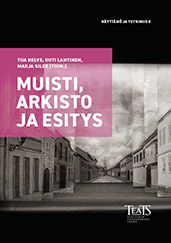Kahdeksankymmentäluku ruumiissani
Turkka, Linkola, Foucault ja minä
Abstract
In this article, I investigate the concept embodied memory in the context of a certain, temporally and locally specific process which took place during my artistic post-doctoral research project. In this project, I experienced sensations and embodied memories which came as surprises for me. These embodied memories were connected to certain, strong masculine authorities who influenced me when I was young, namely Jouko Turkka (1942–2016) and Pentti Linkola (1932–2020).1 In this article, I aim to understand this process on a conceptual level. My research question is: “How to deconstruct personal embodied memories which emerged from the corporeal research method?” I start by describing my corporeal working method during which I made the relevant perceptions for this article. After that, I explain how I have deconstructed and analyzed those perceptions. I focus on the concepts of body and memory. Furthermore, I consider it inevitable to connect them with the concept of experience. My thinking is strongly embedded in the work of Michel Foucault, especially his texts about technologies of the self, panopticon and experience. I conclude the article by pondering different meanings of my body which manifested themselves during the project. Also, I reflect my possibilities of freedom in relation to these masculine authorities – Turkka, Linkola and Foucault, the last-mentioned having an exceptionally central position in my research.





